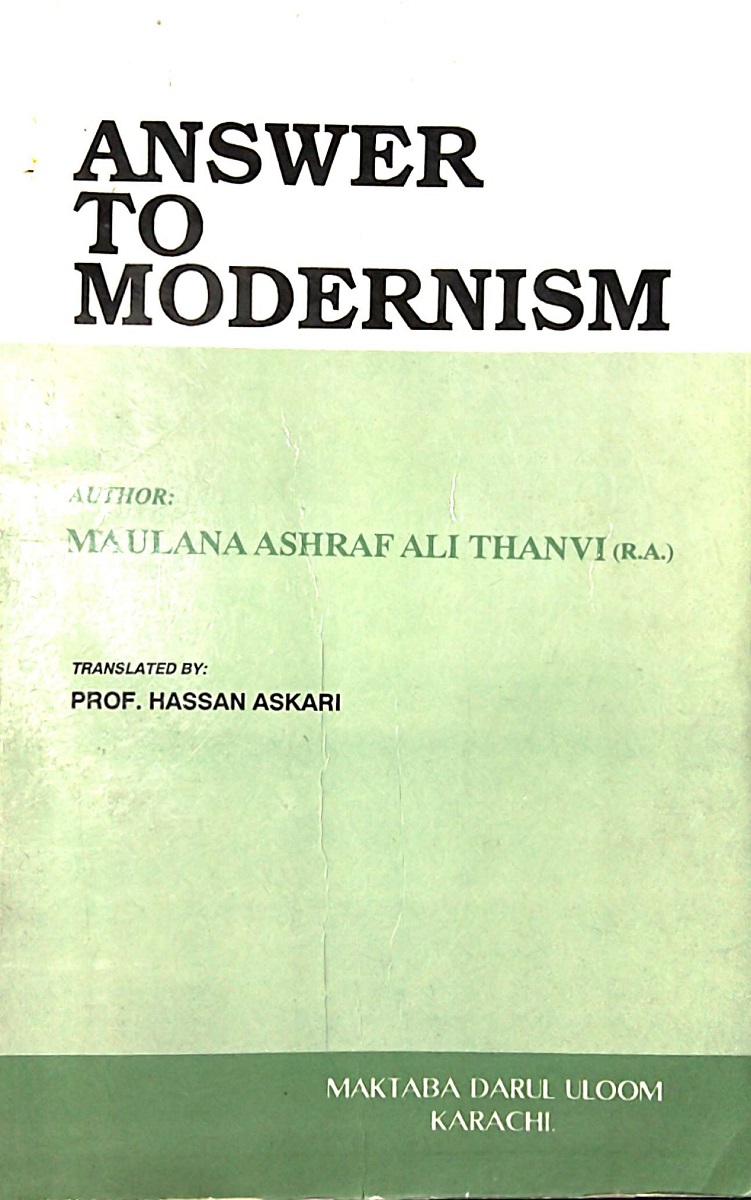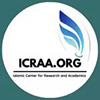
Answer to Modernism by Maulana Ashraf Ali Thanawi
Translated by Prof. Hasan Askari and Karrar Hussain
Published by Maktaba Darul Uloom Karachi (1992)
Book Review by Waqar Akbar Cheema
The book is a translation of Maulana Ashraf Ali Thanawi‘s (d. 1943) well-known work Al-Intabahāt Al-Mufīdah fī ḥal Al-Ishkālāt Al-Jadīdah by Prof. Hasan Askari (d. 1978) and Karrar Hussain (d. 1999).
During the colonial period, Muslims were first exposed to the challenge of scientism. Though the challenge remains, it caused the most severe concerns and uproar during the later part of the nineteenth and early decades of the twentieth century. As a result, many among the Muslim ranks fell for it and started questioning some of the essentials of the Islamic rubric.
Maulana Ashraf Ali Thanawi penned this treatise to respond to the queries and questions of such segments of the Muslim society who gave in to modernism. The book is well organised. The Maulana begins with “first principles.” The seven principles he lays down and explains are then used to respond to objections and queries around the tenets of Islam, such as belief in the angels, the Jinn, Satan, destiny and the life hereafter. There is a reasoned discussion and dispelling of doubts around the authority and authenticity of fundamental sources of Islamic law: Qur’an, Hadith, Ijma’ (consensus) and Qiyas (analogy).
The pseudo-rational arguments against Islamic ideas raised today have their roots in the very misgivings addressed in this book. This makes the book equally relevant today even though written almost a hundred years ago.
In the foreword, the author addresses specific basic errors like calling for the compilation of a “new dialectic theology” (‘ilm al-kalām) without realising the fact that existing and known theological principles are sufficient and comprehensive enough to deal with all the new issues. He also criticises the misplaced trust in “new” ideas without due scrutiny. He highlights how the so-called “new” ideas for which people seek to make revisions in the Islamic conception of things are “hypothetical and conjectural.”
Transcription of the author’s speech at Muhammad Anglo-Oriental College, Aligarh, is given as a preface wherein the author tries to sensitise the students of modern sciences to the issue of doubts and tells the right way to deal with them.
The language of the original work is naturally filled with logical and theological jargon. Yet, the translators have done a commendable job by rendering it into simple language accessible to all.
The book can be downloaded HERE.
